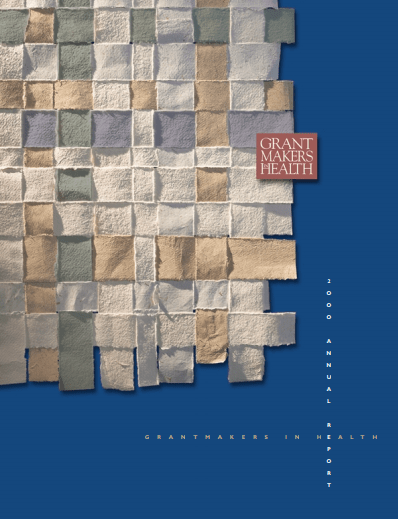Promoting Diversity in the Health Workforce
This GIH Issue Focus outlines steps that health grantmakers can take to improve diversity in the health workforce.
Filling the Gap: Strategies for Improving Oral Health
Oral health is a critical component of overall health and well-being. Diseases of the mouth can reduce the quality of life for those who are afflicted and result in lost work and school days. This Issue Brief reviews the burden of oral disease for society’s most vulnerable populations, describes effective strategies for improving oral health, and highlights initiatives of foundations and corporate giving programs that are working to improve oral health.
Early Childhood Development: Putting Knowledge Into Action
Positive early development is essential to the health and well-being of children, and to promoting their success now and in the future. This Issue Brief presents the latest research on early childhood development and explores strategies and opportunities for grantmakers interested in improving the quality and availability of services for young children and their families.
Annual Report 2000
GIH’s 2000 Annual Report document’s the organization’s programmatic and financial activities.
Advancing Quality Through Patient Safety
The Institute of Medicine estimates that between 44,000 and 98,000 lives are lost annually as a result of preventable medical errors. This Issue Brief examines the response to the medical errors crisis across the health care delivery system, as well as how grantmakers working at the national, state, and local levels can contribute to advancing quality through reductions in medical errors and improvements in patient safety.
Filling the Gap: Strategies for Improving Oral Health
This GIH Issue Focus outlines factors affecting oral health, and provides suggestions on what health funders can do.
Progress and Peril: Examining Antibiotic Resistance and Systemic Contaminants
This Issue Brief, based on an October 2000 Issue Dialogue, explores issues at the intersection of environment and health. It begins with a discussion of the increase in antibiotic resistance, likely factors that have contributed to this increase, and action by the public sector to limit this phenomenon. The report also provides an introduction to systemic contaminants, illustrating both their complexities and intervention strategies through case studies of well-known contaminants. Current grantmaker activities to address these issues are presented, as well as opportunities for future activities that cut across both of these broad issues.
Clearing the Air: Addressing Asthma in America
This GIH Issue Focus explores foundation efforts to address rising asthma in their communities.
Raising the Value of Philanthropy
This report, based on a series of interviews with leaders in health philanthropy, focuses on the characteristics of foundation programs and assessment strategies that appear to be most effective. It considers some of the seminal challenges facing the field and offers insights on operational structures and styles.
Long-Term Care Quality: Facing the Challenges of an Aging Population
For all the sophistication of our health care system, the United States does not have a highly developed and supportive long-term care network that takes good care of its elderly. This Issue Brief offers an overview of the primary factors influencing the quality of long-term care services – including demographics, service providers, financing, and policy and regulation – and profiles innovative grantmaker programs.

